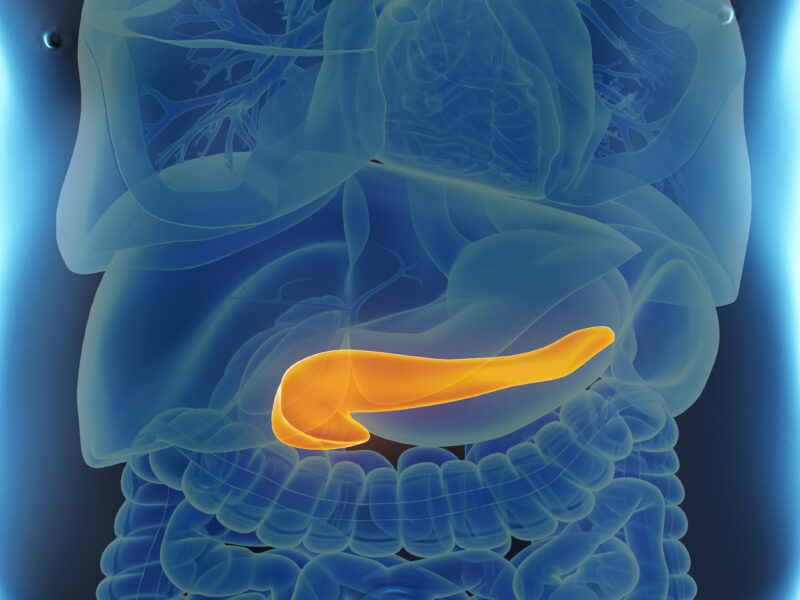Exploring the Link Between Cystic Fibrosis and Celiac Disease
Exploring the Link Between Cystic Fibrosis and Celiac Disease https://pediatricsnationwide.org/wp-content/uploads/2020/06/062320ds1223-header-1024x575.jpg 1024 575 Lauren Dembeck Lauren Dembeck https://pediatricsnationwide.org/wp-content/uploads/2021/03/Dembeck_headshot.gif- June 18, 2020
- Lauren Dembeck

Overlapping symptoms can cause delayed diagnosis of celiac disease in patients with cystic fibrosis.
Physician scientists at Nationwide Children’s Hospital have recently identified three cases of patients with cystic fibrosis, all of whom had the same genotype, were treated with the CFTR modulator, ivacaftor, and were diagnosed with celiac disease. This adds to a novel body of evidence linking dysfunction of the cystic fibrosis transmembrane conductance regulator (CFTR) protein to celiac disease.
The report was published in the Journal of Pediatric Gastroenterology and Nutrition by Michelle Hjelm, MD, a pediatric pulmonary and sleep medicine fellow in Pulmonary Medicine, and Ala Shaikhkhalil, MD, a pediatric gastroenterologist and physician nutrition specialist of Gastroenterology, Hepatology and Nutrition at Nationwide Children’s.
“Coincidentally, Dr. Dorothy Andersen who first described cystic fibrosis in the 1930s, linked it to celiac disease because there is so much overlap between the two diseases that they were initially believed to be on the same spectrum,” explains Dr. Shaikhkhalil, who is also an assistant professor of Clinical Pediatrics at the Ohio State University College of Medicine.
While cystic fibrosis is relatively rare, affecting approximately 1 in 10,000 people in the United States, celiac disease is much more common, affecting approximately 1 in 100 people worldwide, according to the report, and there appears to be an increased prevalence of celiac disease among cystic fibrosis patients.
“We know that a lot of people with celiac disease are underdiagnosed, and that is likely to be true in the cystic fibrosis population as well because the symptoms associated with celiac disease can easily be attributed to cystic fibrosis alone,” says Dr. Hjelm.
The investigators conducted a retrospective review of the medical records of patients receiving ivacaftor therapy at the time of celiac disease diagnosis at Nationwide Children’s. In all three identified cases, the patients had the G551D genotype, which responds to ivacaftor. Additionally, the patients had similar phenotypes, including pancreatic insufficiency, vitamin deficiencies and poor weight gain prior to starting ivacaftor.
After initiating ivacaftor, all three patients had improved weight gain, a typical outcome of ivacaftor therapy; however, they had persistent GI symptoms. Thus, they were tested for and diagnosed with celiac disease.
“We found that these three patients had symptoms that improved significantly with ivacaftor, although not completely resolved, even though they had not taken gluten out of their diet,” says Dr. Shaikhkhalil. “So, we hypothesize that ivacaftor may have partially treated celiac disease for them.”
This case series highlights the importance of screening and evaluating for celiac disease and other gastrointestinal (GI) pathologies in patients with cystic fibrosis with persistent continue to GI symptoms despite therapy.
“This collaboration among specialists is really how we make different connections, find ways to present new questions, and answer those questions for our patients,” says Dr. Hjelm, “And this is a potential area where you can help two different patient populations.”
The authors also note that with availability of newer CFTR modulators and combination therapies, clinicians may find the some of these drugs are more effective at treating both diseases simultaneously or may help explain other cystic fibrosis-related health concerns, such as GI cancer risk.
“We live in an exciting time when new therapeutics are becoming available. It’s important that we seize the opportunity to study the effects of these drugs on outcomes of interest, particularly GI and nutrition outcomes. There is an opportunity for trainees and faculty to get involved in cystic fibrosis research and clinical care,” says Dr. Shaikhkhalil, who helps lead the CF-GI Combined Clinic at Nationwide Children’s.
Reference:
Michelle Hjelm, Ala K Shaikhkhalil. Celiac Disease in Patients With Cystic Fibrosis on Ivacaftor: A Case Series. Journal of Pediatric Gastroenterology and Nutrition. 2020 Apr 16. [Epub ahead of print]
Image credit: Nationwide Children’s
About the author
Lauren Dembeck, PhD, is a freelance science and medical writer based in New York City. She completed her BS in biology and BA in foreign languages at West Virginia University. Dr. Dembeck studied the genetic basis of natural variation in complex traits for her doctorate in genetics at North Carolina State University. She then conducted postdoctoral research on the formation and regulation of neuronal circuits at the Okinawa Institute of Science and Technology in Japan.
-
Lauren Dembeckhttps://pediatricsnationwide.org/author/lauren-dembeck/
-
Lauren Dembeckhttps://pediatricsnationwide.org/author/lauren-dembeck/
-
Lauren Dembeckhttps://pediatricsnationwide.org/author/lauren-dembeck/
-
Lauren Dembeckhttps://pediatricsnationwide.org/author/lauren-dembeck/January 29, 2019
- Posted In:
- In Brief







